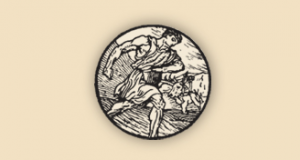 THE CICERONIAN SOCIETY facilitates the development of academic conferences that explore the many and various topics related to our core themes of Tradition, Place, and ‘Things Divine.’ Ultimately, we hope that papers delivered at Ciceronian Society Conferences can find a publishable home in our sister journal: ANAMNESIS.
THE CICERONIAN SOCIETY facilitates the development of academic conferences that explore the many and various topics related to our core themes of Tradition, Place, and ‘Things Divine.’ Ultimately, we hope that papers delivered at Ciceronian Society Conferences can find a publishable home in our sister journal: ANAMNESIS.
Our first conference was March, 17-20th at the University of Virginia in Charlottesville. Additional details about the conference can found on the “Conferences†page. Ultimately, participating scholars will have an opportunity to upload their papers on to the “Conference Papers†page.
Future conferences will probably be located in several different locations around the country and possibly abroad. If you have interest in hosting a Ciceronian Society Conference, please contact us at conferences@theciceroniansociety.com. Further information about our program vision and goals can be found on the “Program Vision†page.
Ciceronian Core Themes
The Ciceronian Society is an intellectual society devoted to the examination of three core themes: Tradition, Place, and ‘Things Divine.’ We selected Cicero as a symbol because facets of his life and orations profoundly represent our central themes.
First, Cicero represents Tradition via his participation in the rhetorical tradition in philosophy. Such an approach, of course, can be employed to criticize abstract rationalism like that of Enlightenment thinkers such as Descartes and Turgot. More broadly, Tradition signals the importance of custom and our relation to the past. In this sense, it can be a guide to human conduct and a constituent of rationality.
Second, Cicero also symbolizes Place in that he advocated the republican tradition’s opposition to centralizing empire. This topic, of course, is extremely germane to the world that we currently inhabit, but we hope to proceed far beyond mere policy questions. The broader theme of Place is an existential category, like the human body, that connotes focus on the limits of human scale, the value of human attachment to historical community and locality, and the value of human connection to nature and the land. Issues of agrarian values, decentralization, localism, and other such concerns are themes that the Ciceronian Society hopes to explore.
Finally, Cicero’s very words constitute our final theme, ‘Things Divine.’ The phrase is part of his famous claim that “wisdom†entails “knowledge of things divine and human.†We intend the expression to encompass a broad swath of meanings. On the one hand, it connotes openness to theological and philosophical inquiry into what is thought to be ultimate and unconditioned; and so we welcome exploration of topics related to Logos, natural law theory, and other such themes. On the other hand, we are also open to the mythos view of culture—i.e., that many basic truths about reality, which people experience, are often expressed in myths.
With respect to possible thinkers whose work might fit well with the Ciceronian Society’s concerns, they are legion. Here are just a few: Hans-Georg Gadamer, Charles Taylor, Edmund Burke, Stanely Hauerwas, T.S. Eliot, Wendell Berry, Richard Weaver, Rene Girard, G.K. Chesterton, Lord Acton, Alasdair MacIntyre, Christopher Lasch, Leo Strauss, Allen Tate, John Randolph of Roanoke, David Hume, James Fenimore Cooper, Robert Nisbet, Alexis de Tocqueville, Eric Voegelin, John Taylor of Caroline, and Michael Oakeshott. This list is far from exhaustive, and many other fine thinkers from across the ideological spectrum could be included and will be welcomed.
read more at the Society’s home page